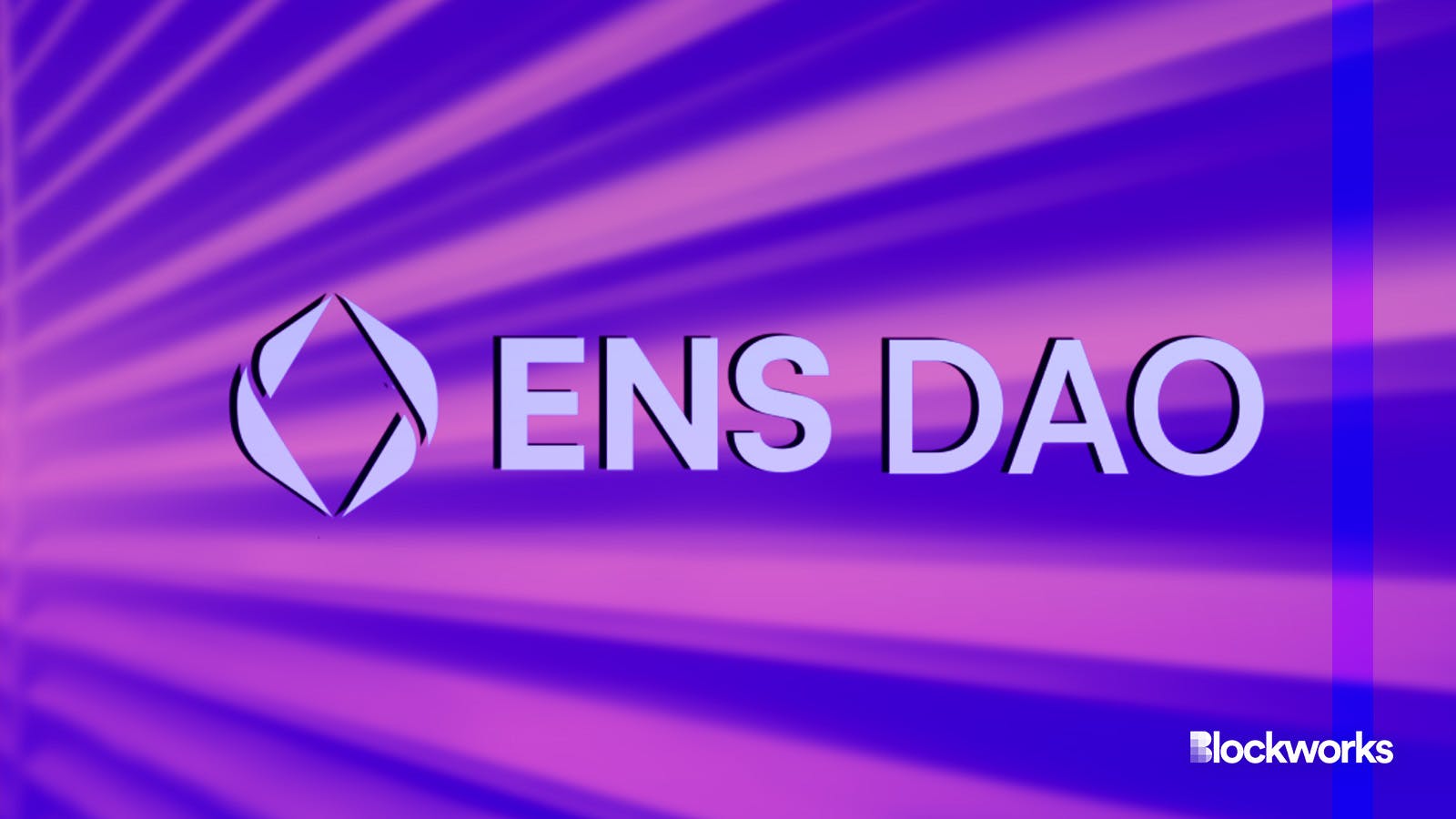ENS DAO approves $300k settlement to end eth.link domain lawsuit
The settlement ends the legal battle over eth.link, a domain once owned by imprisoned developer Virgil Griffith

ENS DAO and Adobe Stock modified by Blockworks
After nearly a year and a half of back-and-forth and an apparent $750,000 in legal expenses, Ethereum domain name service ENS Labs got the go-ahead from its DAO to pay Manifold Finance a $300,000 settlement and end the two sides’ dispute over the eth.link domain.
ENS, or Ethereum Name Service, is a service for giving Ethereum wallet addresses names other than long strings of letters and numbers. The dispute over eth.link started when the GoDaddy domain registration couldn’t be transferred away from imprisoned former Ethereum developer Virgil Griffith.
ENS domains are not recognized by the traditional Domain Name System (DNS) that underpins the internet. Simply put, typing an ENS domain into the search bar of your favorite browser won’t lead you anywhere in the traditional web space.
Read more: Global brands entering Web3? Look to their domain names
To get around this limitation, ENS utilizes its eth.link domain as a sort of bridge. It operates through two key functionalities: EthDNS and EthLink. EthDNS allows DNS queries to access domain forwarding information stored within the Ethereum Name Service, enabling standard internet protocols to retrieve blockchain-based data. Meanwhile, EthLink specifically targets .eth domains to facilitate their resolution via traditional web browsers.
Essentially, by appending .link to an ENS domain (for instance, vitalik.eth.link), it enables traditional web browsers to access content associated with ENS addresses through conventional DNS pathways. This lets ENS domains function more like standard internet addresses.
In the summer of 2022, the eth.link domain was set to expire while the domain’s owner, Virgil Griffith, was serving the first of a five year prison sentence for attempting to help North Korea use crypto to evade US sanctions.
GoDaddy, the platform on which eth.link was registered, allowed the domain to expire rather than let it be renewed on Griffith’s behalf.
Crypto platform Manifold Finance “sniped” eth.link on the auction site Dynadot on Sept. 3, 2022, meaning ENS no longer owned the domain.
ENS filed an injunction in Arizona district court to keep the domain from being transferred — and succeeded after GoDaddy, Manifold and Dynadot all failed to appear at the hearing. In July 2023, a district judge ordered Dynadot to unlock the domain so ENS could transfer its ownership to someone other than Griffith. ENS Labs also brought charges against GoDaddy for refusing to renew the domain, and the judge dismissed two of the five.
The parties in the lawsuit entered settlement discussions, ENS founder Nick Johnson said in a forum post.
ENS’ relationship with GoDaddy doesn’t seem to have completely soured, as the two partnered to let users link wallets to domains earlier this month.
Manifold asked for $300,000 plus confidentiality and non-disparagement clauses in order for the case to be dismissed and ENS Labs to retain ownership of eth.link, according to Johnson.
The DAO vote concluded Sunday night to pay Manifold $300,000 and reimburse ENS Labs the $750,000 in legal expenses — with roughly 88% and 84% in favor of the two moves.
Get the news in your inbox. Explore Blockworks newsletters:
- The Breakdown: Decoding crypto and the markets. Daily.
- 0xResearch: Alpha in your inbox. Think like an analyst.






